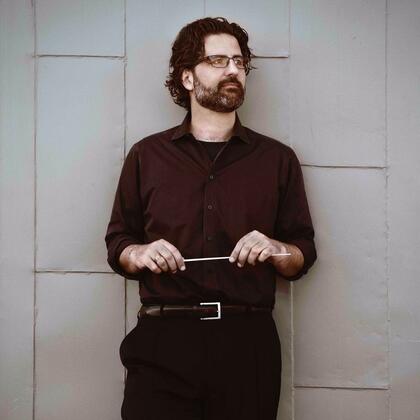A group of recent college grads sharing a house is not unusual. But the foursome that moved into an East Baltimore row house in September is a little different.
Violinists Derek Chen and KuanHao Yen, violist Amelia Eckloff, and cellist Tim Beccue all graduated from Peabody Conservatory last spring. Instead of chasing down gigs in Baltimore and beyond, they auditioned to become yearlong fellows in the nonprofit Mount Vernon Virtuosi's String Quartet. In exchange for a rent-free group home and monthly stipends of $1,200 each, they play free weekly concerts around Baltimore—in nontraditional settings, such as nursing homes, libraries, and homeless shelters— volunteer at a food bank, and provide free music lessons in public schools.

"It's really cool to be using music to give back to the community and to also have a place to focus on our own self-improvement," Beccue says. "And living in a house with like-minded people is fun. So far, we haven't argued over doing dishes but rather about who's in tune or not."
This musical group home is the philanthropic brainchild of Peabody cello Professor Amit Peled. He considers it a proof of concept for the more ambitious plan to convert an abandoned warehouse nearby into a sizable musician housing/performance venue, the Mount Vernon Virtuosi Music House. "The dream is to have an entire chamber orchestra living in East Baltimore," Peled says. "After a few years of fundraising, we decided to start with something smaller."
It all began with the nonprofit Mount Vernon Virtuosi, which Peled founded in 2018, a donation-supported, 17-member chamber orchestra made up of mostly Peabody alums. "The idea is to offer free concerts to the community while also paying the musicians well enough so they can stay in Maryland after they study here," Peled says. An educational component was added in 2021 through the Mount Vernon Virtuosi's Every Child Deserves a Voice program, wherein the musicians provide free music lessons and loaner instruments to the KIPP Harmony Academy, a Baltimore City K-5 public charter school. More school partnerships are in the works, including with the Green School of Baltimore, a public charter school where Beccue and his housemates will soon be teaching.
One of Peled's aims is to cultivate the next generation of classical music lovers, though he feels the discipline and self-enrichment that can come from learning to play violin or cello have their own rewards. "I believe that classical music, if you start early, can teach people to be better citizens because you must learn to listen to each other," he says "You don't have to agree with the person that plays with you, but you have to listen. And that's a great lesson for democracy."
Peled says that when it comes to breaking down cultural barriers and gaining trust, there's value in his approach of having music teachers live near the students. The Music House will have large windows and an outdoor performance space, and he envisions children walking to and from school who will see and hear the musicians rehearsing. "We want the kids to really learn music but learn it from people who live next to them, from people who are neighbors," Peled says.
While the city schoolchildren will learn the classical canon, such as Bach and Vivaldi, Peled is exploring ways to increase the program's cultural relevancy. He has attended services at a few city churches and says he was "just blown away by the dedication to music and how everybody sings together." Now they are developing lessons based on popular gospel songs. Even without these efforts, sonic success stories abound. Peled fondly recalls one young girl who had never even seen a violin take to the lessons so eagerly that she asked her parents to buy her an instrument for Christmas.
Also see
The success of the concerto house will be evaluated in a year's time, with the potential for extending it for a second year. Meanwhile, Peled has raised $1 million of the Music House's estimated $6 million price tag, the sum total of $3 million in construction costs (the building was "practically donated to us," he says) and $3 million to serve as an endowment. Peled dons developer and fundraiser hats in addition to his work as professor and sought-after soloist and recording artist. "I'm a cellist and a conductor, but I'm learning a lot about working with City Hall, getting permits, you name it," he says.
What's easier, playing Bach or dealing with city bureaucracy?
"Oh," Peled says with a laugh, "playing Bach is 10 times easier."
Posted in Arts+Culture
Tagged east baltimore, amit peled, chamber music, nonprofits







